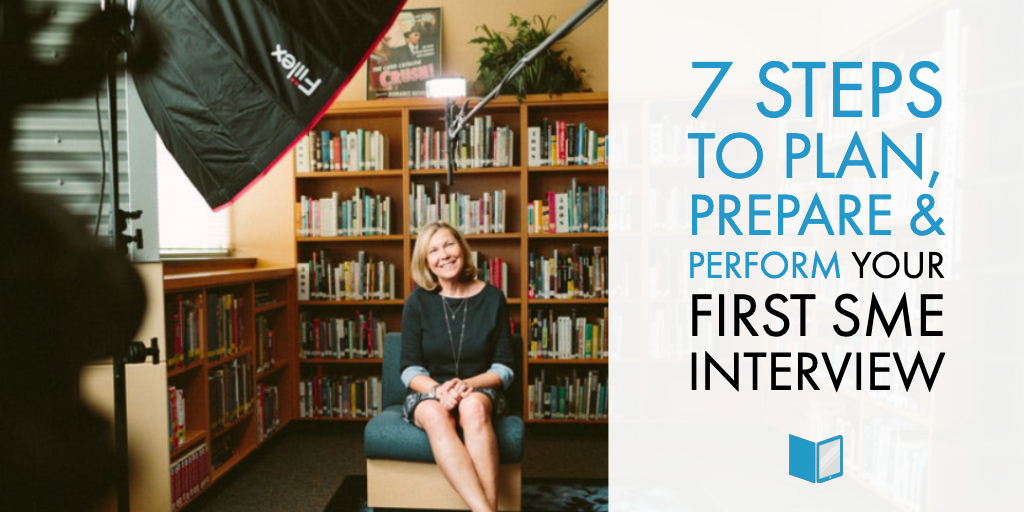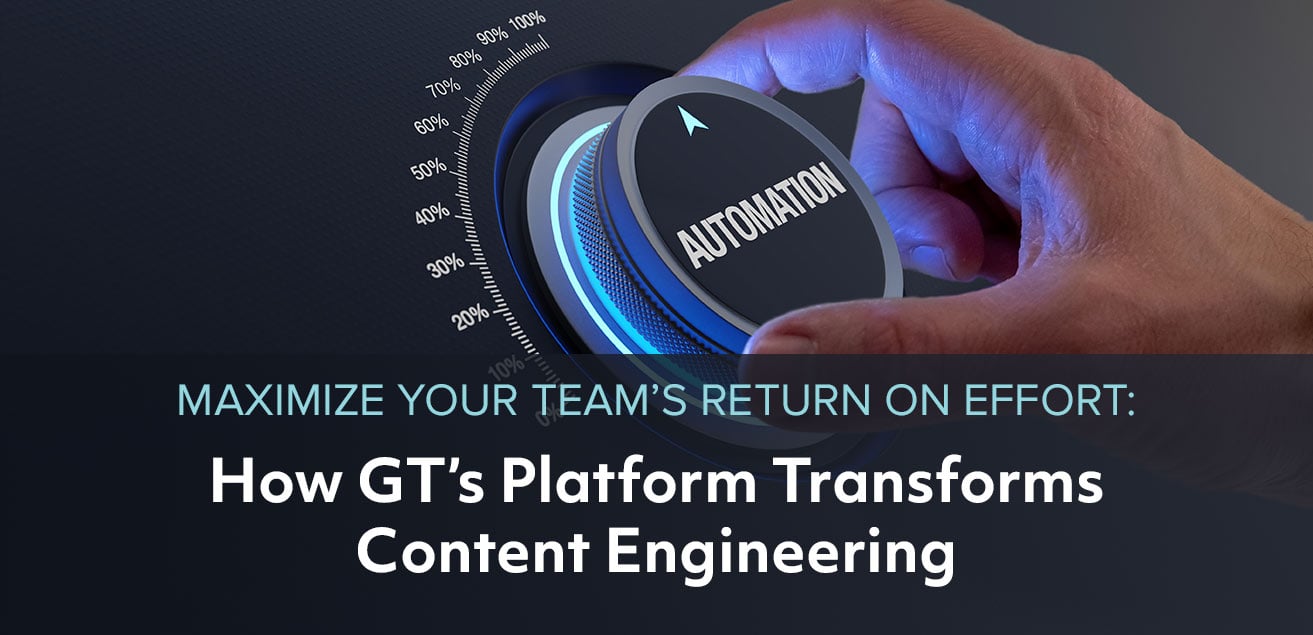Subject Matter Expert (SME) interviews can be one of the most valuable tools in your knowledge sharing toolkit, but conducting the interview in and of itself can be intimidating and time-consuming. But facilitating high-quality SME interviews doesn’t have to be a headache for everyone involved, especially with proper planning.
Follow these seven tried and tested steps for conducting your next SME interview, whether it’s on video, in a podcast or being published across a number of platforms.
1. Identify Your Purpose
What exactly is it that you want to get out of the video in the first place? Do you want your learners to gain facts, knowledge and details to be retained, or are you hoping to have your SME explain a complex process in a more simple and digestible way?
Start your interview process by identifying your overall purpose for the interview, and connect with your SME before the big day to see if your goals align. Send your SME a detailed agenda and outline of what you plan to cover in your interview, and what the ultimate end goal is for learners. Your SME should be able to tell you if anything jumps out on their end, like needing more time to cover complex topics or potentially valuable talking points that were overlooked and that should be newly incorporated.
2. Do Your Prep Work
Take some time before meeting with your chosen SME to read up on the subject of their expertise and learn some of the common lingo or jargon used in their space. Preparing yourself to discuss the subject matter at hand is not just a matter of good etiquette - it’s also good interviewing strategy.
Take stock of all of the knowns and unknowns that you’re facing with the subject matter, and identify where your SME can fill the gaps. eLearning Coach Connie Malamed recommends reaching out to your SME ahead of the interview to request access to documentation and resources to get yourself up to speed in advance.
Making good use of your interview time will not only help to establish a good working relationship with your SME, but it will also help you to become more efficient and intentional with the time you spend together.
3. Identify Your SME Interview Questions
There’s nothing worse than conducting a long-winded SME interview only to realize that you don’t have what you need coming out of it. To mitigate that risk, take the time to plan out your interview questions and cross-reference them with the research and gap analysis you performed in steps one and two.
Prepare a list of interview questions in advance of your meeting, and give your SME a chance to take a look at them before showtime. Elearning Uncovered shares a handy list of content-focusing questions for SME interviews and recommends sharing your questions in advance to help your conversations go much more smoothly.
4. Choose Your Medium
Whether you’re conducting your SME interview by video, audio, or good old fashioned note taking, choosing the right medium is critical when it comes to eLearning. Consider things like how your audience currently consumes learning, and what entry point they will be coming from.
Are they using the information from this interview to access on-the-job performance support, or are they hearing points of view and conversations through a podcast on their way home from work? Whatever your format, be sure to follow best practices.
5. Conduct Your Interview
Start your interview by framing the context for your SME. Remind them of the goals your learners will have and how these needs overlap with their work. Walk them through the questions and answers that need to be covered, and identify any problems or steps that a learner will need to take to accomplish their goals.
Make sure to check in with your SME throughout the interview to see if there’s anything missing from your question set or if there’s anything they would like to add. The easiest way to get the most out of your interview is by employing transparency and teamwork.
6. Stay on Track
Even the most effective interviewers can have a hard time keeping their SME interview on track and focused. If you start to notice that your expert is straying from the topic at hand, or if their answers are lacking energy and clarity, try to refocus your efforts by using some tried and true interview techniques.
For example, Michele B. Medved, principal owner of MBM training services, recommends asking your Subject Matter Expert to provide added details around specific topics. Questions that start with “Tell me more about”,“Give me an example of,” or “Recall the time for me when” will help to guide the interview back on track, and get you added context where you need it most.
7. Follow Up
Following up on ideas, concepts, or information that you do not understand not only helps to clarify ideas for your own sake, it also provides more context and content for your interview in the long run. Don’t be afraid to ask follow-up and clarifying questions to make sure you get the full picture of the subject at hand. Chances are that if you have a question for your SME, your audience will too.
Most importantly, make sure to thank your SME for their time and effort in collaborating on your learning project, and share the final product with them so that they can provide feedback or share amongst their own networks.
To learn more about how MyEcontentFactory can make creating SME interviews a breeze, contact a member of our team today and set up your free demo.






Leave a comment